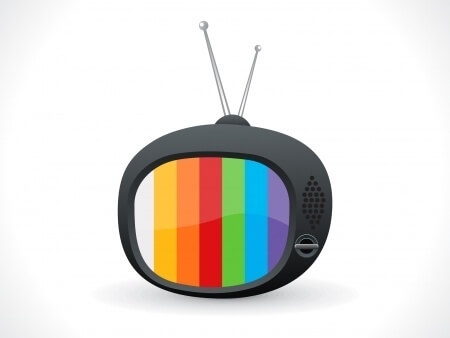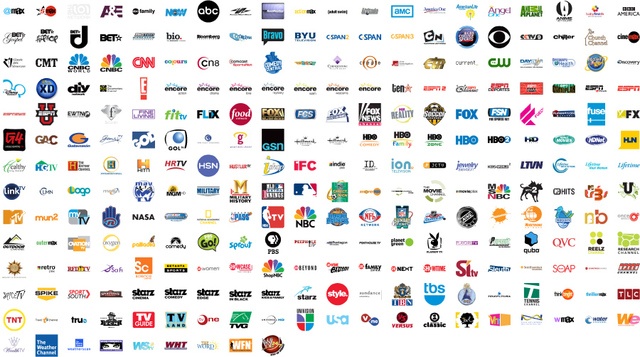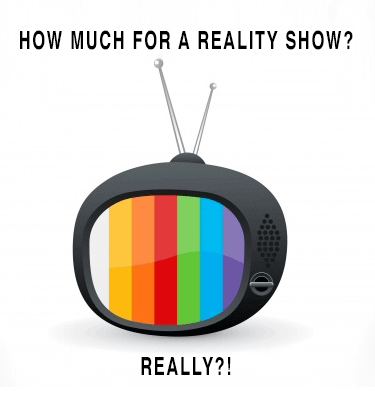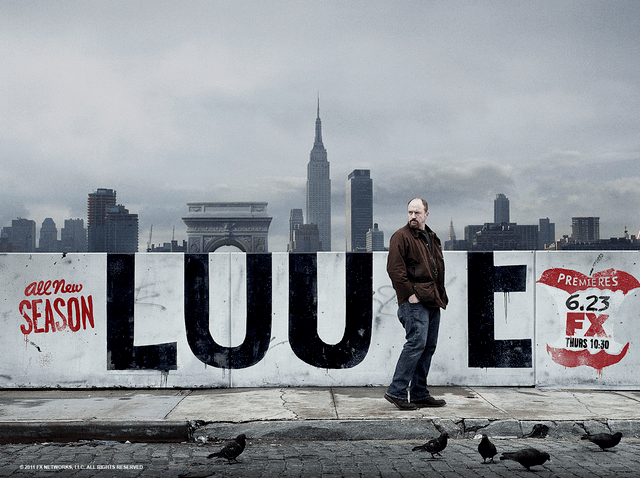 As many of our readers know, its been an incredibly busy 2013 so far for ECG Productions. We moved to a MUCH larger facility in May, hired two new full time employees and have been all over the country producing new music videos, commercials, animated demos and corporate projects. This past week I came across an excellent interview that our good friend Marc Patterson conducted with Jason Sirotin (Marc is now managing the Strand Theater in Marietta Square). While it was still in its raw form, I thought the content was extraordinarily important and something our readers would really connect with. So here, after a bit of editing to get it into a more readable form, is Marc’s interview with Jason about what really goes into creating a reality television pilot:
As many of our readers know, its been an incredibly busy 2013 so far for ECG Productions. We moved to a MUCH larger facility in May, hired two new full time employees and have been all over the country producing new music videos, commercials, animated demos and corporate projects. This past week I came across an excellent interview that our good friend Marc Patterson conducted with Jason Sirotin (Marc is now managing the Strand Theater in Marietta Square). While it was still in its raw form, I thought the content was extraordinarily important and something our readers would really connect with. So here, after a bit of editing to get it into a more readable form, is Marc’s interview with Jason about what really goes into creating a reality television pilot:
 Jason Sirotin, Principal at ECG Productions in Atlanta, recently scored a hit with many in the industry with his blog article “Why Music Videos Don’t Cost $500.” Turns out many other producers struggle with passionate but uninformed artists who think an idea, a camera, and a little cash should get them a career-enhancing video.
Jason Sirotin, Principal at ECG Productions in Atlanta, recently scored a hit with many in the industry with his blog article “Why Music Videos Don’t Cost $500.” Turns out many other producers struggle with passionate but uninformed artists who think an idea, a camera, and a little cash should get them a career-enhancing video.
This time out, we shift our focus to another topic: the ins and outs of creating and shooting a reality television pilot. Much like the droves of people contacting us about producing music videos, there’s no shortage of similarly passionate, but also similarly uninformed would-be clients looking to produce reality TV content. To tackle this topic, we decided to approach it interview-style when Jason had a few minutes between projects:
M: Jason, what’s been your experience at ECG with client inquiries related to developing a reality show pilot?
J: I get a call or an e-mail at least once a week asking: “How much for a reality show pilot?”. That’s all they say. They won’t let me know if it takes place in a desert. They don’t tell me how many cast members are involved or anything about the concept. They just want to know how much it costs. Its kind of like walking into an auto dealership and asking “How much for a car?”. My answer is: “There are a million ways to create a reality show. I need more to go on.”
M: Let me back you up a second. When that’s the first and only question, what are your initial thoughts about the client?
 J: Red flags! First, I automatically think they have no idea what they are doing. Second, chances are they don’t have a budget. Third, I can only hope this is a rich person who is looking to do something and they just don’t know how. I always try to give the caller the benefit of the doubt because they might have a great concept and the money to make it happen. In my first e-mail, I’ll write back to them and I’ll say, “Hey, thanks so much for thinking about us. In order for me to give you an accurate quote, I really need to have much more information than you are currently giving me. Can you tell me about the show? Can you tell me where it takes place, number of cast members, just a general concept? Of course I’ll need much more information to give you a detailed quote, but let’s find out if we are even in the same ballpark in terms of price, because I don’t want to spend three days working on a budget for a reality show for someone who only has $1000.”
J: Red flags! First, I automatically think they have no idea what they are doing. Second, chances are they don’t have a budget. Third, I can only hope this is a rich person who is looking to do something and they just don’t know how. I always try to give the caller the benefit of the doubt because they might have a great concept and the money to make it happen. In my first e-mail, I’ll write back to them and I’ll say, “Hey, thanks so much for thinking about us. In order for me to give you an accurate quote, I really need to have much more information than you are currently giving me. Can you tell me about the show? Can you tell me where it takes place, number of cast members, just a general concept? Of course I’ll need much more information to give you a detailed quote, but let’s find out if we are even in the same ballpark in terms of price, because I don’t want to spend three days working on a budget for a reality show for someone who only has $1000.”
M: When you think about reality television, what is the prevailing mindset among those who think they want to do this? Do they have any real idea of what they are getting into?
 J: A lot of them don’t. They see reality TV and think they can do it because it’s supposed to seem effortless. Television is a very passive experience, so when you are sitting there in your chair eating chips and drinking soda, your assumption is: “Oh that can’t be too hard – you get some cameras, some people, and you go do it.” What people don’t realize is the months of planning that go into something like that and the execution required to make a winner. Making something LOOK effortless, like it just happened and the cameras happened to be there to capture it, that takes effort. That’s what people forget. Yes, you can find someone who will go out this weekend and shoot a reality show for you for $5000 with minimal planning, but that show is not going to be good. These things take planning, planning, and more planning. Say you have a competition-style reality show that has ten contestants? How many audio recordists do you need in case individuals break off from the group? Ten people aren’t going to be in the same room all the time. How many camera crews are you going to need? Are they going to be traveling between locations? Do you need to capture the travel? If they’re in a house, what kind of lighting is in the house? Are we going to have to bring in our own lighting (almost always a “yes”)? What kind of cameras do we want to use? Do we want to have tons of depth of field or do we want it to look very flat? Is it going to look like Real Housewives or is it going to look like The Hills on MTV? There are so many variables. We probably need a wide variety of lenses. I could have a lens that rents for $50 a day or I could have one that is $3000 a day. You just don’t know!
J: A lot of them don’t. They see reality TV and think they can do it because it’s supposed to seem effortless. Television is a very passive experience, so when you are sitting there in your chair eating chips and drinking soda, your assumption is: “Oh that can’t be too hard – you get some cameras, some people, and you go do it.” What people don’t realize is the months of planning that go into something like that and the execution required to make a winner. Making something LOOK effortless, like it just happened and the cameras happened to be there to capture it, that takes effort. That’s what people forget. Yes, you can find someone who will go out this weekend and shoot a reality show for you for $5000 with minimal planning, but that show is not going to be good. These things take planning, planning, and more planning. Say you have a competition-style reality show that has ten contestants? How many audio recordists do you need in case individuals break off from the group? Ten people aren’t going to be in the same room all the time. How many camera crews are you going to need? Are they going to be traveling between locations? Do you need to capture the travel? If they’re in a house, what kind of lighting is in the house? Are we going to have to bring in our own lighting (almost always a “yes”)? What kind of cameras do we want to use? Do we want to have tons of depth of field or do we want it to look very flat? Is it going to look like Real Housewives or is it going to look like The Hills on MTV? There are so many variables. We probably need a wide variety of lenses. I could have a lens that rents for $50 a day or I could have one that is $3000 a day. You just don’t know!
M: If you could educate anyone interested in a reality TV show about the must-know, must-have things before shopping for a production company, what would they be?
J: The first things I need to know are what the show is about and where it’s taking place. Are there one or multiple locations? I need to know how many people are involved, and how many of them will be on camera. Is there a host? The next questions are about time. Is it an hour-long show or a half hour show? Obviously, if it’s an hour show it’s probably going to be at least twice as much.
 What kind of look do you want to have? The client may think, “Oh, I want it to look like Million Dollar Listing, or I want it to look like a 30-for-30 episode, or I want it to look like 24/7 on HBO.” Those are very different looks, so that will help us determine how to gear it. How many weeks do you want to shoot? Is the show one where we move a bunch of kids into a house to film their lives? That is a huge difference. How long are we going to shoot them, or are we following a team of fishermen hunting lobster? If so, I’m going to need waterproof gear. I can only have two guys on each boat. How many boats are we following?
What kind of look do you want to have? The client may think, “Oh, I want it to look like Million Dollar Listing, or I want it to look like a 30-for-30 episode, or I want it to look like 24/7 on HBO.” Those are very different looks, so that will help us determine how to gear it. How many weeks do you want to shoot? Is the show one where we move a bunch of kids into a house to film their lives? That is a huge difference. How long are we going to shoot them, or are we following a team of fishermen hunting lobster? If so, I’m going to need waterproof gear. I can only have two guys on each boat. How many boats are we following?
With all this in mind, you really have to give the production company a clear sense of what you want to do. In the end, that is going to help them price it more effectively. A good production company will make the estimate as accurate and efficient as possible because they know that you need to sell this show and make a profit. If the estimate is over the top and too frivolous with expenditures, A) You’re not going to hire that production company and B) Even if you did, no one would make any money.
M: Is there a difference between the money you need to produce a pilot and the money needed to produce each episode if the show is picked up?
J: It really depends. I’ll give you a real life story. Louis C.K., who has a show on F/X… and these are rough numbers, they are rounded… I just heard an interview that he did. F/X gave him $250,000 to make the pilot. That included his personal talent fee, all his cast, his gear, everything. The show got picked up, and I think they gave him $350,000 an episode, and that included his pay. Right now, he is making about $450,000 an episode. That is an interesting situation. He is not getting that much money in relation to industry standards, but he gets full creative control. They don’t see the scripts; they only see the final show. As I understand it, the only thing the network can change would be the edit.
So let’s look at the situation where someone is producing a pilot on their own. Obviously, you don’t have big backing yet, so you’re going to try to do it as low budget as possible, but still deliver a high-quality product. So, let’s say the budget is $150,000 for a reality show pilot. If you were to do the pilot on your own, the first episode would be more expensive because you have a huge expense that is not incurred in the additional episodes… the creation of your graphics package. That package includes your show opener, your bumpers, and your transition elements – all of those things. Typically we charge anywhere from $25,000 to $75,000 just for the graphics package. We have done graphics packages for three Travel Channel shows. Those were all $25,000 to $35,000 and that was nearly four years ago. So you have that big up-front expense. Typically, your hope is to get more money for better production and to pay your crew better rates. You see, in the pilot you are just trying to get it on the air, so everyone (production crew included) has an incentive to take risks and keep costs low in the hope that the pilot is accepted.
M: So, if the client’s idea is good and they have done their conceptual homework, a production company like ECG may be more willing to take a chance and cut costs in the hope that the pilot will be a winner?
J: Exactly.
M: But if it doesn’t, do you just say it was a good idea, we gave it our best shot, and made a little money?
J: I hopefully made enough where it didn’t hurt my business. This something we’ve definitely gotten better at through experience. You take your licks, you realize how far you can extend yourself and still keep the business healthy, and then you do better the next time.
M: So if I’m the one who has the idea, I need to make sure that the concept is solid and pitch my idea to production companies hoping they will buy in?
J: Yes – and you have to not… I don’t know how to say this nicely… you have to not be a dick about it. You have to understand that if you know nothing about reality show production, you have to come prepared to listen and you have to rely on the production company’s expertise.
 A lot of people call and they have this grand vision and know nothing about what it takes. When you start to unveil the reality, they are almost mad at you. I hear, “I talked to somebody else, and they said they could do it for a fraction of that price.” Well okay, go do it with them. But I’m telling you there is a right way of doing this and a wrong way. A lot of people are penny wise and pound foolish. They’ll go out and say that this person could do it for this much but they’re not considering that that company has never done anything like this before. Pricing that isn’t based on real-world experience is just abstract. Do these folks willing to do it for peanuts know what the networks are looking for? Is it going to be marketable? Do they have the ability to execute this in a timely manner? Do they have the ability to execute it at all?
A lot of people call and they have this grand vision and know nothing about what it takes. When you start to unveil the reality, they are almost mad at you. I hear, “I talked to somebody else, and they said they could do it for a fraction of that price.” Well okay, go do it with them. But I’m telling you there is a right way of doing this and a wrong way. A lot of people are penny wise and pound foolish. They’ll go out and say that this person could do it for this much but they’re not considering that that company has never done anything like this before. Pricing that isn’t based on real-world experience is just abstract. Do these folks willing to do it for peanuts know what the networks are looking for? Is it going to be marketable? Do they have the ability to execute this in a timely manner? Do they have the ability to execute it at all?
You can get anybody to do something for money. People are desperate out there. They’ll shoot a pilot for you for $10,000 that we might charge $100,000 for, but it’s not going to be the same. Their shots, their production values, they are going to be very different and not nearly as good. Often, clients don’t think about audio. I see that all the time. Audio is terribly difficult in reality television, because its often run & gun. This isn’t the same as recording dialogue on a sound stage where you’ve got a very controlled environment and multiple takes to get what you need. If you don’t have good audio, you are missing half your show. For clients and cut-rate production companies, it’s a secondary thought, and I think it’s epidemic. You’ve got to think about audio. Many think, “Well, we’ve got the cameras!” Okay, but what about audio? “Oh yeah… throw in a boom mic.” Okay, what kind? There are tons! What kind of lavaliers? Typically if you’re talking about anything other than Lectrosonics, which are the industry standard and very expensive, you’re already setting yourself up for major problems once the cameras are rolling.
So a production company that knows what it’s doing is going to put you in a position for success because if you win, they win. If you fail, there is no extra money in it. The low-end guy that is going to do it for $10,000, he’s not thinking of that. He’s thinking about the $10,000…until he gets into it and realizes it’s a ton of work. He then asks you for more money, and then where are you at? Do you bail? Throw good money after bad?
M: That speaks to the failure that you said is on both ends of the equation. It can’t be all about the money. Whether it’s the person shopping their idea or the production company trying to put money in their pocket – if it’s all about the money first, then everybody has missed it.
J: You want to find the company that can give you the best production value, not the best price. If you’re making your decision purely on cost, then you’re probably not going to make a good decision.
 M: That’s the thing that gives you the best chance of long-term, true success.
M: That’s the thing that gives you the best chance of long-term, true success.
J: Not only that, when you go to the networks, they are looking to see that you are producing with a company that is established. Whether or not they’ve had a giant hit is one thing, but as long as they have been in the business and have a good body of work, the gateway to entry is going to be much easier. If it’s you and “five guys you know,” and the production quality is not there… They may like the concept, but you probably won’t break through that glass ceiling to having your pilot purchased.
M: How open do you wish people who called you were to an exchange of creative ideas? I know some are, but more often than not it seems that clients have pride and control issues. They just want you to do their bidding rather than “mess” with their idea.
J: Bottom line – the person who comes in and says, “You work for me and this is my vision” – I say (at least to myself), “Then, you are going to pay me a lot more money.”
M: Why?
J: Because creatives want to be free. When creatives don’t have freedom, they are automatically on the defensive. Let’s say you come in and you have that attitude. I’m most likely to be very, very “on point” in terms of charges. Let’s take something very simple. You want me to design a flyer for you. You say, “This is my flyer. It’s my way, and I want it to be exactly like this.” Automatically, I know you are a dick, and I’m not going to give you a good deal. If someone is really hard to work with, that stress comes with a cost, and I’m going to charge more.

Not only that, our work is typically done in billable hours. Say you and I are in a good relationship, and you want to design a flyer. You come to me and say, “Here’s some ideas. What do you think? Can you come up with something that we can look at together?” Because I’m a creative, I take more pride in that project because I’m adding my ideas. Therefore, if something takes me 2 hours, I may only bill 1 hour. I might put that on myself because I wanted it to be better. Because this is a showpiece for me, I’m excited about it. I’m enthused. Whereas, if the guy is being a dick, I’m more likely to say, “Okay, there’s fifteen minutes – check; another fifteen minutes – check. Oh, you want me to change where that comma is… four minutes – check. I’m more likely to take every single task and calculate it. I won’t charge them for anything we didn’t do, but I’ll sure as hell charge them for every single thing we did do, down to the penny.
If I have a good working relationship with a client, my goal is to foster that relationship, make great products together and deliver them at a reasonable price. I just wrote a blog article about this called, “All It Takes is a ‘Thank You’.” It talks about this very thing. If you come into a relationship with a bad attitude and are rude and not inclusive about the creative process, you are diminishing the value because you are not going to get the best product. You may get the product you want with the satisfaction of everyone “Yes sir-ing” you every step of the way.
We won’t work with people who treat us like that. Thankfully, we don’t have to settle for that, but there are companies who do. People have to keep their business running, but life’s too short to work with people who don’t respect what you do. If you’re a potential client, you called us for a reason – because you need us. You don’t have all the answers. If you had all the answers, you could do it yourself, right?
M: Since reality TV has been around for a while, is there a percentage success rate of TV pilots that are bought?
J: I don’t have the exact number, but it’s a definitely a small percentage. One reason is market saturation. Everyone’s got an idea for a reality show and networks love them because they’re relatively easy to produce. If you want to have a shot, you can’t have poor execution. If a semi-decent idea is executed well, your probability of success goes way up. This goes back to my penny wise and pound foolish comment. If you have this great idea and you don’t put the proper amount of money to fund it and get it done correctly, you are taking that money and wadding it up and throwing it into a wood chipper. It’s gone and it’s never coming back. We’ve had clients who have come to us after having done things wrong two, even three times in a row with other companies. They come to us and say, “This is the third time we’ve done this.” Then they’ll get our quote and say, “Wow! That’s staggering! That’s insane! That’s more than all three we’ve paid for so far put together.” Okay, but what if you had come to us first? Your total cost would have been just a little more. I don’t mean to be harsh, but that’s not our problem. Our work costs that much because our quality and value are an insurance policy guaranteeing that your product will turn out great. Not every pilot is going to sell. Sometimes you get in there and grind it out, put your absolute best product together and nobody bites. That’s business. But in a saturated market, you’ve got to give yourself every single advantage you can to stand above the rest. You have the best chance of greatness if you put the best money towards it. Just make sure you’re working with a company like ECG that’s going to make sure you see every dollar up on the screen.
M: So among the heavy hitters that have done it right, that have gone with the right production company, that have been open to the creative process, and have a great product; what are the most important differentiating factors between a good pilot that gets bought and one that gets passed over.
 J: That’s a wonderful question. It all starts with business. Who are going to be the advertisers for the show and how can we entice them? Is there room for product placement? How can generate revenue streams from the show? Is the content compelling? Are people going to be interested in the subject matter? Who is your target demographic? Who are you trying to reach? How are we going to keep them through the commercial breaks? You want to prevent break erosion and the networks are going to want to know you are thinking about that stuff. How do you keep people tuned in? Take the example of Pawn Stars. They’ll always do that trivia thing, and they will come back between the breaks and show you something, and then they’ll go to another break. That’s to prevent people from leaving. The network wants to know that your production company and you are thinking of those things. If they see you’ve got an eye towards marketing, not just production, they’ll be that much more enticed by what you’re bringing to the table.
J: That’s a wonderful question. It all starts with business. Who are going to be the advertisers for the show and how can we entice them? Is there room for product placement? How can generate revenue streams from the show? Is the content compelling? Are people going to be interested in the subject matter? Who is your target demographic? Who are you trying to reach? How are we going to keep them through the commercial breaks? You want to prevent break erosion and the networks are going to want to know you are thinking about that stuff. How do you keep people tuned in? Take the example of Pawn Stars. They’ll always do that trivia thing, and they will come back between the breaks and show you something, and then they’ll go to another break. That’s to prevent people from leaving. The network wants to know that your production company and you are thinking of those things. If they see you’ve got an eye towards marketing, not just production, they’ll be that much more enticed by what you’re bringing to the table.
Of all those things, “how is the show going to make money” is the most important question. A show that doesn’t generate revenue isn’t sustainable. Secondarily, is the show up to network broadcast standards? Is the show high quality? Does it sound great; does it look great? Are the graphics professional? Is the story good? Is there a beginning, middle, and end (or even better, a cliffhanger) for every episode? Are we pulling in an audience? Networks want loyal viewers. That ecosystem is changing, especially with what Netflix is doing now with releasing a season at time of their original series, but the same fundamental rules apply. Are people going to come back and keep watching your show? Can we trust that they are going to keep paying for a station? If HBO doesn’t have solid roster of original series, people are going to be like “I don’t want to watch that, I don’t want to pay $20 a month for HBO.” The bottom line is cash and you have to be with a partner that understands the business of television, not just the business of making television.
M: Paint me the picture of your ideal client.
 J: My ideal client is someone who has a great concept, knows what they want, and knows that they don’t have the ability to execute it which is why they are coming to us. They want to rely on us as professionals to do the job and execute their vision properly. We want them to treat us like a partner. We are there to make sure the show is a success. With every production there are bumps in the road and creative differences, but you want to be able to have that dialogue. We want to be able to say, “That’s not a good idea and here’s why.” If they say, “I disagree with you and I’d like to do it this way.” In the end, they are paying and we do it. But the right client most of the time is going to listen to reason. We are going to come to a compromise together on what’s best. All of our good clients do that.
J: My ideal client is someone who has a great concept, knows what they want, and knows that they don’t have the ability to execute it which is why they are coming to us. They want to rely on us as professionals to do the job and execute their vision properly. We want them to treat us like a partner. We are there to make sure the show is a success. With every production there are bumps in the road and creative differences, but you want to be able to have that dialogue. We want to be able to say, “That’s not a good idea and here’s why.” If they say, “I disagree with you and I’d like to do it this way.” In the end, they are paying and we do it. But the right client most of the time is going to listen to reason. We are going to come to a compromise together on what’s best. All of our good clients do that.
M: Jason – thanks. This could really help those on both sides of the reality TV coin who are willing to consider your thoughts.
J: My pleasure! Since I know this will be a blog post eventually, I’d like to remind our readers to make sure to post in the comments section if you think we left something out or disagree with anything I’ve said. And, as always, if you’re looking to produce a reality TV pilot, or any other type of video or animation project, please reach out to a member of our team! If you’ve read this far, you’ve may well have already made our first conversation MUCH more productive! Thanks for reading!



9 Responses
This post is absolutely spot on. As someone who works in production it never ceases to amaze me how many people underestimate both the cost of production and the viability of an idea. Your idea may seem great to you but it takes a lot more than that to build and sell a pilot and even more to get that pilot to air. The first thing I always experience are clients who want to build the best possible production at the lowest possible price. It just doesn’t work that way and understanding that goes a very long way to getting things off of the ground. Along with that it’s vital that you understand the marketplace, your potential audience (and not just who but how their demographic thinks and what they focus on) so that you can create something that media outlets will be interested in. Remember, television isn’t just a labor of love, it’s a business and if your idea can’t generate advertising the likelihood of it making it to air is incredibly slim (as if it wasn’t already!).
Keep up the good work guys, this stuff is great both for us industry veterans and potential clients, and it’s wonderful to see a production company so open about its policies and prices, and enthusiastic about educating people new to the industry!
Thanks for the comment Alex. We are so happy that you see our articles as a tool. That’s why we write articles like this because we use them as a part of client education. Often times once you educate a client they understand and are willing to play by the rules.
This is a great article for someone like myself. I have been working on a sizzle for over 6 months. Is it important to have the sizzle shot by a production company as well. Does sizzles have to be TV quality or do the network focus on the storyline? Your article really helped to explain who shots the pilot and the importance of getting it done professionally for the network. So the production company and the client becomes partners is that correct and if so what percentage of the budget does the production get paid if the show is purchased? Also who handles the budget? Can you tell me? I would love to meet with your production company. Who do I call to set up an appointment? Thanks for a great educational article.
Thanks for your comment, Sharon! Without a doubt, your sizzle reel should look as much like the intended finished product as possible. This is your one shot to convince a network or other distributor that your concept is better than countless other options and worth their time, resources and dollars. To that end, you need every advantage you can get: great production values, solid storytelling, broadcast quality audio and graphics…you need the total package. We’d love to have you out to our studio so we can meet and chat about your project. Please drop a line to info@ecgprod.com and we’ll set something up. Thanks so much for reading!
I just went out with a production Company on a reality concept and budget $25,000 the pilot has a lot of the quality things you mentioned but the producer did it with passion and has lost money on the deal because of the passion of believing. The customer comes back trying to make new Ideas, opinion of what needs to be changed, too late. The funny part is that I think having the Advertiers lined up when bringing the Pilot to be sold is the key and most people dont have the capacity to do that from an amature perspective. I know nothing about production, I have an Idea, sometimes is better to stay out of the way and let the shoe maker make his shoe. Knowing something is having an open mind for example what I got from this blog was keep it simple stupid, why Let the producers produce your idea let them develop it, go out and find the advertisers and then when is all done present it complete and yes at the end having fun and being nice will get the whole process more easy for all. Thanks for this Article
Raul
This is a nice educational article for us who still want to make our dreams come true… And the most interesting thing is that the article is in a dialog form which makes it easy to read and creating images of the the people talking. Thank you guys for all the information.
who did you go through for your reality show. I have a group of ladies called the diamond divas trying to do a reality show its a ladies social group
Thanks for this blog post! It is extremely informative and gave insight from a different perspective. I am gearing up to pitch a show idea and this was exactly what I needed to read. Thanks again. You ROCK!